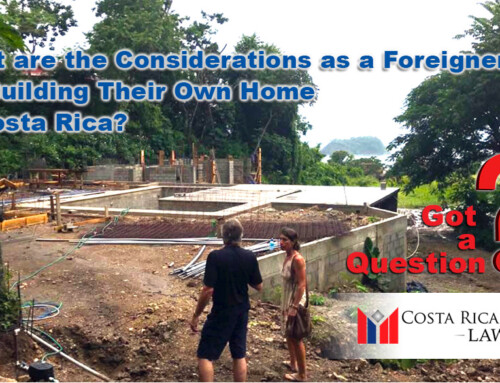What Should Expats Considering Costa Rica as a new Home Expect?
I have lived and worked in Costa Rica for over twenty-two years. I can say without a doubt, that the natural beauty and the climate in Costa Rica is very easy to adjust to, as being very pleasant in both regards, however, as an expat American, Canadian, or European, it will not be “business as usual”, in most other respects.
Costa Ricans are generally a polite, friendly, and pacifistic group of people. However, the social, legal, and cultural norms, are strikingly different indeed, from those of most expats in their home countries. Costa Rican Society and Latin American society in general, does not aspire to the same level of logical thinking and efficiency as most expats would be used to.
Problem Solving
Problem solving is always performed on a “reactive”, rather than a “proactive” basis. This means that the negative aspects of the problem must be felt and experienced, prior to a solution to the problem being considered. Accordingly, in the mind of many expats, needless suffering will have to be endured before the problem is solved..
Likewise, the general reaction to work, or production of any sort, including the implementation of solutions to problems, is slow, creating a further hardship, for the Costa Rican population as a whole to endure. Logical thinking does not “leap to the rescue”, as it would in most expat’s home countries. The reaction to pressuring Costa Ricans to deliver production on an expat anticipated time frame is “stone-walling”, with nothing happening.
The Legal System
Most expats will come from jurisdictions where English Common Law is the legal system utilized. This system of laws originates from England and it is the dominant system of laws utilized by the U.S., Canada, and British Common Wealth Countries. It is a system composed of Statutory and Judge-made laws. This legal system allows for an evolution of the law, based on societal changes over time, as are interpreted by Judges in a Court, producing a “common thread” of legal development with respect to any given subject matter, respected by the Courts and Society, as a whole.
In Costa Rica, as in all of Latin America, Civil Law (Roman Law) is the legal system which has been adopted. This legal system is considerably different in its approach to delivering justice. Each subject area of the law (eg. Criminal, Family, etc.), is codified into various legal declarations in the form of statutory articles. These codified articles are applied by a Judge to any given fact situation presented in Court, largely without reference to any established jurisprudence.
The Extent of Corruption
As Judges in Courts are largely not bound by jurisprudence (Precedent decisions made by another Court on a similar legal fact pattern), corruption has made a significant intervention in the judicial process. It is not that corruption doesn’t take place in the home country expat societies as well, however, it is practiced in a much more open and accepted manner of operating in Costa Rica.
Corruption also permeates the legal and social system in Costa Rica, down to the traffic police taking bribes instead of issuing traffic tickets and Government employees accepting bribes in return for granting permits and permissions for various business endeavours, such as Municipal Building Permits, and the like.
Legal Documentation
Document production in Civil Law, such as company incorporations and powers of attorney, is much more formal in its requirements than in the Common Law system, with many circumstances dictating that the form of the document produced takes precedence over the substance of its content.
My Opinion
In short, if you are an expat merely living on an offshore pension, or investment income, and paying monthly living expenses, your requirement to compromise to accept these social, legal, and cultural differences, will be minimal.
However, for the expat to become totally immersed in Costa Rican Society, from a living and a business point-of-view, will require a significantly greater compromise to be made, in order to sustain an enduring social integration.






